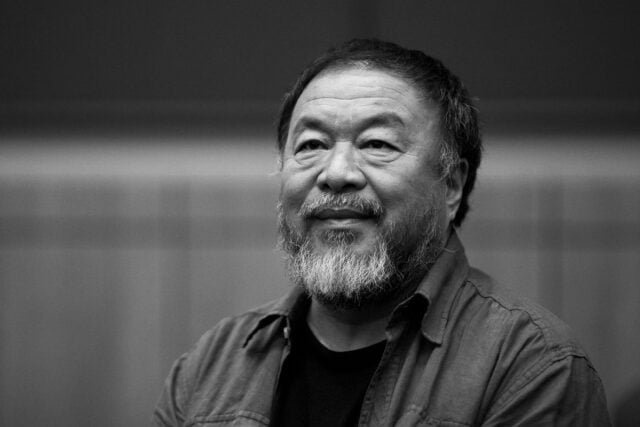
Ai Weiwei, a globally renowned Chinese artist and activist, has been a vocal critic of oppressive regimes, from his native China to the conflict in Gaza and the cultural landscape of New York City. His art and outspoken views have made him a significant figure in advocating for human rights and freedom of expression.
Key Highlights:
- Ai Weiwei’s art challenges political and social norms, reflecting his experiences in China, the U.S., and his views on global issues.
- His outspoken nature led to the cancellation of his London exhibition following a controversial tweet about Israel and Gaza.
- Weiwei’s journey from China to the U.S. and back, and his eventual move to Europe, is a tale of relentless pursuit of artistic freedom and expression.
Early Life and Influence of the Cultural Revolution
Ai Weiwei’s early life in China during the Cultural Revolution deeply impacted his views and art. His decision to move to the United States in the 1980s was driven by his desire to escape what he perceived as an unsafe and abnormal society in China.
Artistic Beginnings in the United States
In the United States, Weiwei’s experiences, including witnessing police brutality and homelessness, further shaped his perspectives. His friendship with poet Allen Ginsberg in New York City and his exposure to different forms of injustice influenced his work and his relentless documentation of life in the U.S.
Return to China and Artistic Evolution
Upon returning to China, Ai Weiwei’s work continued to challenge societal norms and injustice. His art, such as the Han-Dynasty Urn with the Coca-Cola logo and the Sichuan Names Project, highlighted issues of consumerism, political oppression, and government accountability.
Confrontations with the Chinese Government
Weiwei’s activism, particularly following the Sichuan earthquake, led to conflicts with the Chinese government, resulting in the demolition of his studios and his eventual arrest and house arrest.
Exile and Continued Advocacy
After his passport was returned in 2015, Ai Weiwei relocated to Europe, continuing his work and advocacy. His experiences as a foreigner and outsider have been a recurring theme in his life and work.
Recent Controversies and Views on Gaza
Ai Weiwei’s recent cancellation of his London exhibition was a direct result of his outspoken views on the Israel-Gaza conflict. His tweet, which sparked controversy, led to the indefinite postponement of his shows, highlighting the issue of censorship and the freedom of expression in art.
Conclusion
Ai Weiwei remains a significant figure in contemporary art and activism. His journey from China to the global stage, confronting oppression in various forms, demonstrates his unwavering commitment to human rights and freedom of expression. His story is not just about art, but about the power of the individual voice against the forces of oppression.








